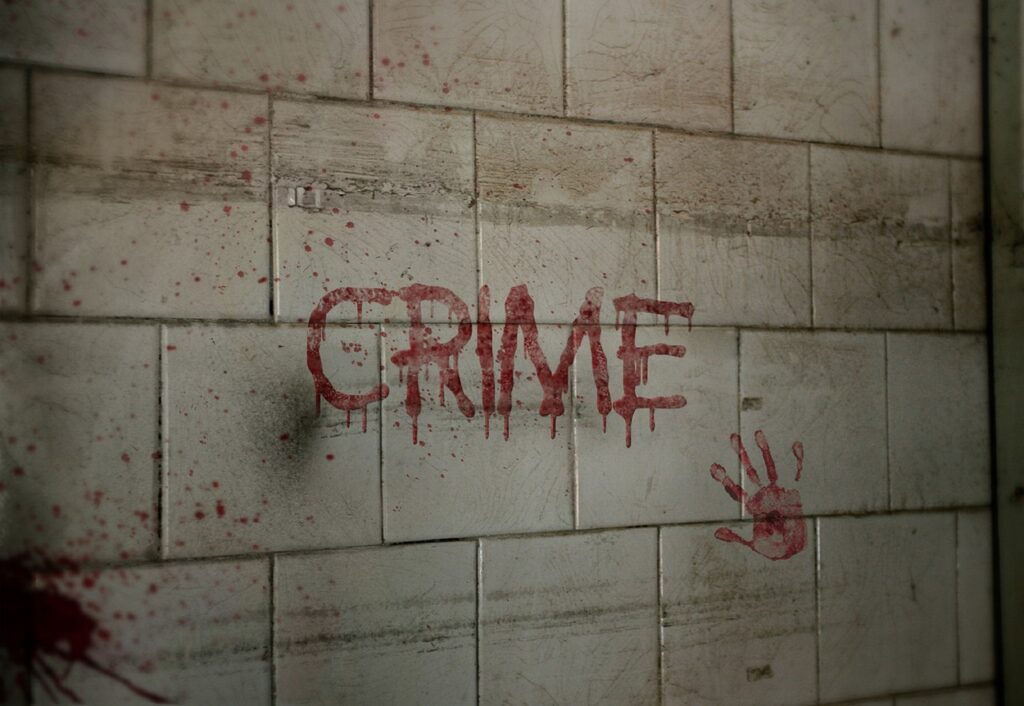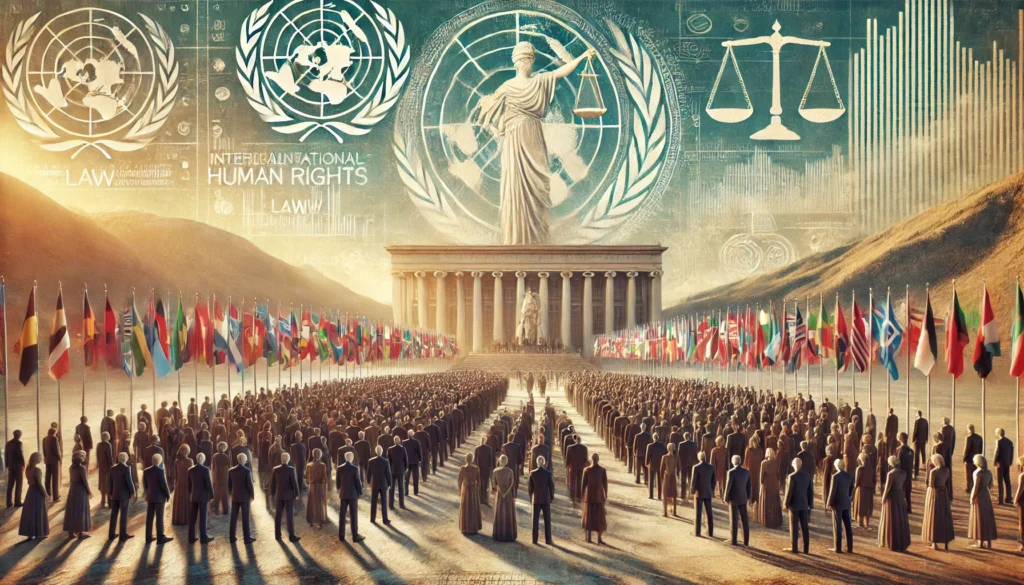Published on 21st June 2025
Authored By: Aarya Singh
Chanakya National Law University, Patna
ABSTRACT
This paper provides an in-depth analysis of the functioning of the International Criminal Court (ICC) and the issues covered by its jurisdiction. The case studies where the ICC has successfully implemented its role to prevent a reign of terror are provided along with the case studies of present global scenario where the ICC has failed in resolving conflicts. The obstacles in its pathway for delivering humanitarian justice are discussed, and reforms to surpass those obstacles are presented.
INTRODUCTION
The Rome Statute of 1998 led to establishment of the International Criminal Court (ICC) in 2002[1]. As of 2025, it comprises 125 countries, the recent addition being Ukraine on 1st January 2025. It is headquartered in The Hague, Netherlands, and is the world’s first permanent international court. Article 5 of the Rome Statute[2] defines what issues it delves into – genocide, war crimes, crimes against humanity, and crimes of aggression. The ICC possesses the jurisdiction to convict individuals who are either nationals of member states or have committed crimes in their territories, but only assumes the role when members are unwilling or incapable of prosecuting such offenders. The United Nations Security Council (UNSC), under Article 13(b) of the Rome Statute[3], refers cases covered under the jurisdiction of the ICC to the ICC, whether or not the country is a signatory to the Rome Statute.
The regional composition of the Court varies as such: 33 African countries, 19 from Asia-Pacific, 20 Eastern European, 28 from Latin America and the Caribbean, and 25 from Western Europe and other countries. However, major global powers of the world – the United States, the Russian Federation, India, and China are not signatories to its treaty nor its members. This serves as a major setback to the powers of the ICC.
MAJOR ISSUES ADDRESSED BY THE ICC
The first trial by the ICC was against Thomas Lubanga Dylio, at the request of the Congolese government in 2004 in the Democratic Republic of Congo (DRC). Thomas was convicted in 2012 after a prolonged trial for being involved in war crimes- enlisting children below the age of 15 to engage them in hostilities, i.e., using them in war. He was sentenced to 14 years of imprisonment and served as an important precedent for furthering the powers and jurisdiction of the ICC.
Besides these, these were the major interventions by the ICC on the issues covered by Article 5 of the Rome Statute:
- Darfur Conflict in Sudan: The Darfur Conflict began in Sudan in 2003, wherein two rebel groups- the Sudan Liberation Army (SLA) and Justice and Equality Movement (JEM) took up arms against the Sudanese government for the suppression of non- Arab communities in Darfur. In response, the regime led by Omar al-Bashir led a strong, oppressive crackdown on rebels by advancing support to local militia known as Janjaweed. This resulted in one of the worst humanitarian crisis with 300,000 people killed and 2.5 million displaced[4] and commission of rape, torture and mass killings against non-Arab groups such as Fur, Zaghawa and Masalit. The ICC took cognizance of the matter after the UNSC referred the case to it under Resolution 1593[5], resulting in the formulation of charges of war crimes, genocide, and crimes against humanity for the first time against the head of a state, Omar al-Bashir. However, he remained in power till 2019, defying arrest orders.
- Lord Resistance Army (LRA) in Uganda: The Lord Resistance Army was a rebel group that originated in 1987 under Joseph Kony in northern Uganda to overthrow the Ugandan government and establish a theocratic government based on the interpretation of the Ten Commandments and Acholi tradition. It abducted around 30,000 children, indoctrinating them to kill their own families, and carried out widespread massacres in northern Uganda, displacing over 1.5 million people.[6] The Ugandan government referred these cases to the ICC in 2004, and the ICC issued an arrest warrant against the LRA’s top leaders in 2005. The top leader, Kony, was charged with war crimes and crimes against humanity- murder, enslavement, rape and child conscription.
- Arab Spring in Libya: A civil war began in Libya in 2011 following the Arab Spring against the dictatorial rule of Muammar Gaddafi. The ICC intervened in February 2011 following a reference from the UNSC as per Resolution 1970[7]. The ICC issued an arrest warrant against Gaddafi for crimes against humanity, but he was eventually killed by the North Atlantic Treaty Organization (NATO) under the UN mandate.
- Rohingya Crisis in Myanmar: The military government of Myanmar launched an offensive on the Rohingya minority, leading them to flee to neighboring Bangladesh. Although Myanmar was not a signatory to the Rome Statute, yet ICC claimed jurisdiction based on cross-border crimes (Bangladesh being a member of the ICC). In 2019 ICC launched an investigation into the deportation of refugees to Bangladesh as a crime against humanity, but there are still obstacles in garnering evidence in conflict-torn Myanmar.
FAILURES OF ICC IN MODERN CONFLICTS
Despite having effective jurisdiction and powers, the ICC has failed to resolve issues in the present global scenario, leading to a humanitarian crisis in various parts of the world. The case study for the following is presented below.
The Gaza Conflict
Presently, the Gaza conflict that was triggered by an offensive by Hamas on October 7, 2023, has entered its 20th month and has claimed 62,614 Palestinian lives[8]. The Netanyahu government is accused of committing one of the worst humanitarian crimes in the 365 sq. km Gaza Strip in the name of pressuring militants to release the hostages held by Hamas in the October 7th attack. The ICC has issued arrest warrants against Israeli PM Benjamin Netanyahu and his former Defense Minister Yoav Gallant for alleged war crimes and crimes against humanity. Starvation was alleged to be used as a method of warfare by the hardcore Jewish government. They had cut off all supplies and aid coming to Gaza by making a complete blockade of the Palestinian land. In the guise of attacking the bases of militants, hundreds of women, as well as babies as young as one month, have been killed. Jews have been the worst victims of torture and humiliation in human history. Still, the Bible’s New Testament asks an individual to be merciful while judging others, especially in modern times. The government has been accused of committing crimes against humanity- murder by intentional deprivation of essential commodities and intentional persecution of civilians.
However, the following challenges act as deterrents for the ICC in exercising its power: Israel, not being a member of the ICC, refuses to accept its jurisdiction, a lack of international support, as the ICC’s order has led to criticism by the USA and other prominent countries, and lack of means to enforce the orders as the ICC is dependent on the member nations for the implementation of its orders.
The Russia-Ukraine Conflict
The conflict between Russia and Ukraine dates back to Russia’s annexation of Crimea in 2014 and escalated into full-fledged war with Russia’s invasion of Ukraine on February 24, 2022. Russia claims it to be a measure for self-defense as Ukraine was about to seek membership of the North Atlantic Treaty Organization (NATO), which would place its facilities near Russia’s border. The ICC has alleged that Russia’s top leadership and Russia’s Commissioner for Children’s Rights, Maria Lvova, Belova of war crimes and crimes against humanity through the forcible deportation of children from Ukraine captured territories to Russia. Additionally, Putin’s former Defense Minister Sergei Shoigu and Chief of General Staff Gerasimov are accused of hampering civilian infrastructure, including nuclear facilities, in Ukraine.
The ICC is still unable to enforce arrest warrants against the top Russian leaders due to jurisdictional issues- Russia not being a signatory to the Rome Statute and Russia being a permanent member of the UNSC makes it difficult for the ICC to counter its power in the global arena.
The Sudanese Civil War
The civil war broke out in Sudan on August 15, 2023, as a result of conflict between two factions of the military government- the Sudanese Armed Forces (SAF) led by General Abdel Fatteh al-Burhan and the Rapid Support Forces (RAF) under Mohamed Hamdan Dagalo. This has impacted peace in various regions of the country, leading to 8.8 million internal displacements and 3.5 million fleeing their homeland,[9] with a famine situation in parts of North Darfur. Charges of war crimes and crimes against humanity are meticulously investigated against both parties by the ICC.
The ICC fails in exercising its powers as there is a lack of cooperation from the Sudanese government in the form of suppressing access to documents, evidence, and witnesses, and restricting visas to the ICC personnel. The matter was referred to the ICC by the UNSC, and since Sudan is not a signatory to the Rome Statute, it refuses to accept the binding obligations of the ICC. There are political dimensions added to it, too, as the African Union and the Arab League view the ICC’s decisions as biased.
CONCLUSION
Jurisdiction in each of these cases presented afore plays a very important role in the successful prosecution of individuals accused of committing genocide, war crimes, crimes against humanity, and crimes against peace. In order to bolster the International Criminal Court (ICC) and make it more effective in prosecuting war crimes and crimes against humanity in conflicts like Sudan, Ukraine, and Gaza, a number of key steps need to be taken. First, increased international cooperation is necessary, such as stronger legal arrangements for extradition, UN Security Council backing with diminished veto power in instances of mass atrocities, and targeted sanctions against non-cooperative states and actors. Enlarging the ICC jurisdiction under universal jurisdiction instruments and encouraging wider membership in the Rome Statute by non-signatory states like the United States of America, Russia, China, and Israel would further increase its legitimacy in its global jurisdiction. Investigative powers must be strengthened with on-ground presence, top-tier technology for forensic evidence, and strong witness protection measures to obtain evidence even under hostile situations. Resolving political challenges by diplomatic means and shielding ICC proceedings from geopolitical meddling would prevent political interference. In addition, international task forces must be created to execute ICC warrants, backed by worldwide asset freezes and travel bans against indicted persons. Finally, public campaigns emphasizing the ICC’s purpose and giving priority to restorative justice for victims would foster international support and pressure for accountability. Collectively, these moves would greatly increase the ICC’s capacity to hold international law accountable and make war crimes violators face trial.
REFERENCES
[1] International Criminal Court, Encyclopaedia Britannica, https://www.britannica.com/topic/International-Criminal-Court (last visited May 7, 2025).
[2] Rome Statute of the International Criminal Court art. 5, July 17, 1998, 2187 U.N.T.S. 90.
[3] Rome Statute of the International Criminal Court art. 13(b), July 17, 1998, 2187 U.N.T.S. 90.
[4] Human Rights Watch, “Entrenching Impunity: Government Responsibility for International Crimes in Darfur,” Human Rights Watch Report, Vol. 17, No. 17(A), 2005, available at https://www.hrw.org.
[5] S.C. Res. 1593, ¶¶ 1–3, U.N. Doc. S/RES/1593 (Mar. 31, 2005), available at https://www.un.org.
[6] Phuong N. Pham, Patrick Vinck & Eric Stover, After the War Ends: A Population-Based Survey on Attitudes About Peace, Justice, and Social Reconstruction in Northern Uganda, Conflict & Health, 10(1), 1 (2016), available at https://conflictandhealth.biomedcentral.com/articles/10.1186/s13031-016-0078-5.
[7] S.C. Res. 1970, ¶¶ 4–8, U.N. Doc. S/RES/1970 (Feb. 26, 2011), available at https://www.un.org.
[8] Israel-Hamas War in Maps and Charts: Live Tracker, Al Jazeera (Oct. 9, 2023), available at https://www.aljazeera.com/news/longform/2023/10/9/israel-hamas-war-in-maps-and-charts-live-tracker.
[9] Sudan: Conflict, Displacement and Humanitarian Crisis, Al Jazeera (May 2025), available at https://www.aljazeera.com/news/sudan-conflict-displacement-2025.




